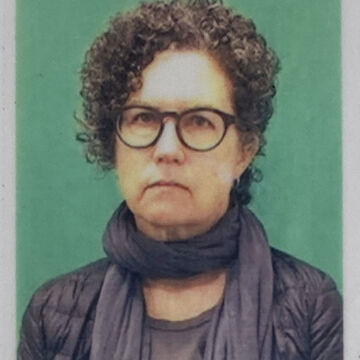

Ellen Grimes
Associate Professor
Contact
Bio
Ellen Grimes is an architectural designer, consultant, and teacher in Chicago. She has taught at the School of the Art Institute since 2007, where she serves as the faculty adviser to the SAIC chapter of the National Organization of Minority Architects. She also mentors students in the BFA architecture pathway as they apply to graduate professional programs; recent students have been admitted to Columbia University, Cornell, Harvard, UCLA, the University of Pennsylvania, and the University of Michigan. She has also taught at the University of Illinois at Chicago, the Illinois Institute of Technology, and the Ecole Nationale Supérieure d'Architecture de Grenoble. She regularly serves as a guest critic at schools throughout the US. She has been invited to present her peer-reviewed research at universities in the US, Mexico, Canada, the U.K., Belgium, and the Netherlands.
Her consulting practice, Available, uses design and management techniques to repurpose undervalued assets in pursuit of the beauty and possibility found in environmental and social justice. Her current work focuses on the Sustainable Square Mile, a project in Chicago’s West Woodlawn neighborhood, as a consultant to Blacks in Green and as a board member of the Emmett Till and Mamie Till Mobley House Museum. In addition, she has worked with Bruce Mau Design, Gensler, Garofalo Architects, and Greg Lynn Form on projects in the US, Thailand, China, and Canada. Her work with these firms received substantial recognition, including AIA awards and representation in major museum collections.
She is also an editor at large at Flat Out. Her writing and editorial work has appeared in Buildings and Almost Buildings, Bowling, Flat Out, Log, the Journal of Architectural Education, and Contents. She was awarded the Van Alen Institute’s New York Prize for Public Ecologies, a project at the Midewin National Tallgrass Prairie. She has received a number of grants to support her research, including an international, multi-institutional study funded by the US Department of Education which she lead as a principal investigator. Most recently she was awarded a National Historic Trust grant for a community-based history of the Emmett Till and Mamie Till Mobley House in the Chicago neighborhood of West Woodlawn. She holds an MArch from the University of Illinois at Chicago, and an MBA and BA from the University of Chicago.
Her teaching philosophy is grounded in the liberatory practices of Fred Moten and Kerry James Marshall.
“…study is what you do with other people. It’s talking and walking around with other people, working, dancing, suffering, some irreducible convergence of all three, held under the name of speculative practice. The notion of a rehearsal – being in a kind of workshop, playing in a band, in a jam session, or old men sitting on a porch, or people working together in a factory – there are these various modes of activity. The point of calling it ‘study’ is to mark that the incessant and irreversible intellectuality of these activities is already present. These activities aren’t ennobled by the fact that we now say, “oh, if you did these things in a certain way, you could be said to be have been studying.” To do these things is to be involved in a kind of common intellectual practice.” (110) “Form is not the eradication of the informal. Form is what emerges from the informal. So, the classic example of that kind of song… is ‘What’s Going On?’ by Marvin Gaye – and of course the title is already letting you know: goddamn it, something’s going on! This song emerges out of the fact that something already was going on. Then, from a certain limited perspective, we recognize, there are these people milling around and talking and greeting one another – and then, something that we recognize as music emerges from that. But then, if you think about it for half-a-damn-second, you say, ‘but the music was already playing.’ Music was already being made. So, what emerges is not music in some general way, as opposed to the non-musical. What emerges is a form, out of something that we call informality. The informal is not the absence of form. It’s the thing that gives form. The informal is not formlessness. And what those folks are engaging in at the beginning of “What’s Going On?” is study. Now, when Marvin Gaye starts singing, that’s study too.” (128-129) Fred Moten, quoted in “The General Antagonism: An Interview with Stevphen Shukaitis,” in Harney, Moten, The Undercommons, Fugitive Planning and Black Study, Minor Compositions, 2013, 110, 128-9
“If you really want to be free, you have to take charge of your capacity to shape the world.” Kerry James Marshall in Kerry James Marshall (video), 17 Oct 2016, New York Times.